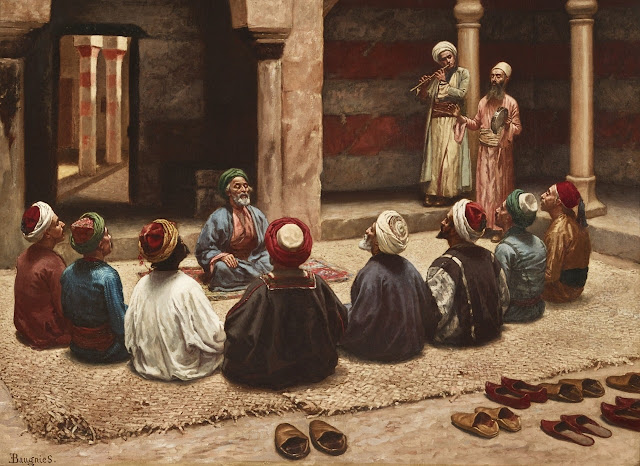The history of the Arab-Muslim world is linked to the religion of Islam, which has deeply influenced several dimensions of civilization among Muslims, the best example is thinking.
It is very difficult to determine the origin of a thinking, but it is
possible to notice its evolution in the social, cultural and political
framework.
Arab-Muslim thinking is a journey from what is theologico-political to
what is philosophical and spiritual.
The question of happiness in the Arab-Muslim world is treated by several
scholars like Al Fârâbî. The nature of Islamic philosophy especially in the
question of happiness is purely spiritual but it is somehow influenced by the
works of the Greeks through translation.
Al Fârâbî presented a socio-political doctrine in his treatment of the
question of happiness, he talked about the happiness of the city, a collective
happiness which aims at all the members of a city, it is a project, a finality
and a plan of civilization.
However, the Arab-Muslim world has lived several experiences in relation
to the quest for happiness, so we are talking about Sufism.
Sufism can take on many meanings and definitions, but generally it is
concerned with divine oneness, contact with God, and love. Indeed, Sufism is
love itself.
Treating Sufism as a doctrine or a way of thinking will lead us towards
an approach based on the individual trying to free him/her from his/her ego and
help him/her to reach a spiritual state characterized by inner balance, peace,
freedom and clarity.
But treating Sufism as a social movement will lead us to many issues and
questions regarding the practices (Toroqs) that are influenced by Sufi masters
and fraternities throughout the history of the Muslim world.
Based on this finding, we ask the following questions:
What is happiness in Arab Muslim philosophy? What is Sufism? what is its
doctrine based on? what are its practices? and what is its relationship with
personal development?

Comments